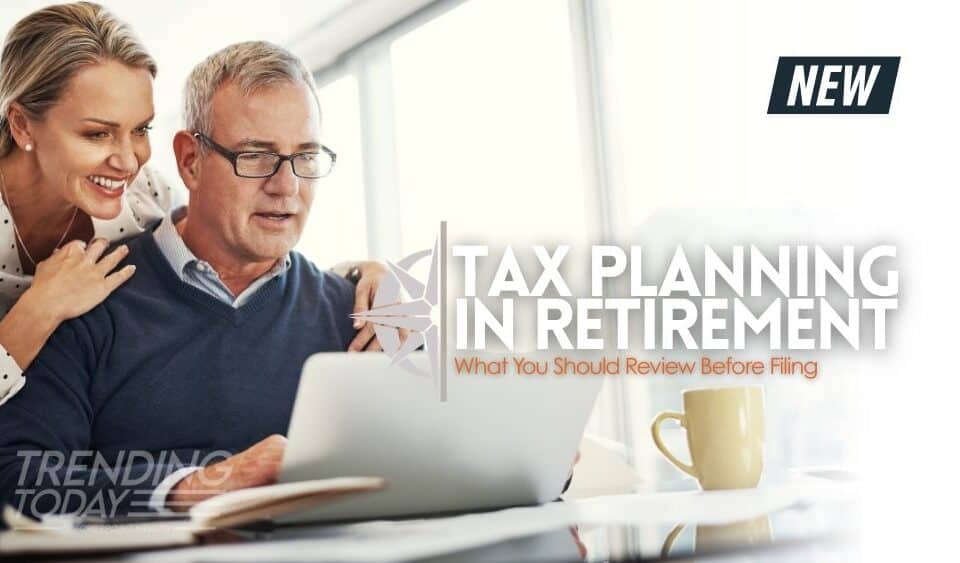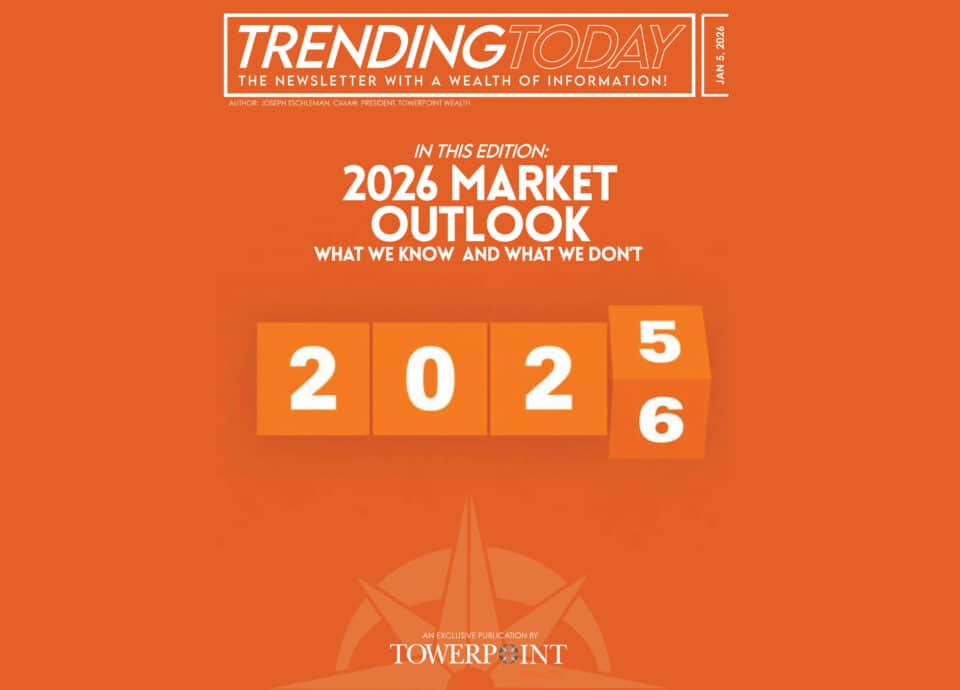Unlike a few years ago, cryptocurrency is no longer a fringe concept.
Whether it’s Bitcoin making headlines, NFTs shaking up the art world, or blockchain technology promising to reshape industries, digital assets are now a topic many investors are paying close attention to — and in some cases, adding to their portfolios.
But with innovation comes uncertainty. The crypto landscape is fast-moving, complex, and often clouded by hype. For investors with longer-term goals, it can be difficult to know whether digital assets represent a smart opportunity, a speculative gamble, or something in between.
At Towerpoint Wealth, we believe curiosity is healthy, but strategy is essential. Digital assets may play a role in a thoughtfully constructed financial plan, but only if they align with your personal goals, risk tolerance, and broader wealth strategy.
In this article, we’ll unpack what cryptocurrency and digital assets really are, explore where they might fit in a diversified portfolio, and discuss the potential risks, tax considerations, and planning implications you need to understand.
For investors curious about how to invest in crypto, the real question isn’t just how, but how to do it wisely, and whether it fits into their longer-term strategy.
Key Takeaways
- Investing in crypto can offer potential upside, but it also comes with significant volatility and complexity — it’s not a one-size-fits-all asset.
- A thoughtful crypto investment strategy should align with your goals, risk tolerance, and time horizon, not short-term market trends.
- If you’re wondering how to invest in cryptocurrency safely, the answer starts with education, diversification, and proper custody solutions.
- Understanding how much crypto gets taxed — and how to report gains — is essential; a crypto tax accountant can help you navigate IRS rules and avoid costly surprises.
- Before deciding whether it’s smart to invest in crypto, make sure it fits within your broader wealth plan, not in place of it.
What are Digital Assets?
Digital assets are more than just “internet money” — they’re a fast-evolving category of investments built on blockchain technology.
At their core, digital assets are things that exist in digital form and carry ownership rights. In the financial world, that typically means cryptocurrencies and other blockchain-based innovations.
Here’s a quick breakdown of the major players in the world of digital assets:
Cryptocurrencies
These are digital currencies like Bitcoin, Ethereum, and Solana that operate independently of central banks. Instead of relying on a government or financial institution, cryptocurrencies use blockchain technology — a decentralized digital ledger — to securely record transactions. Investors are often drawn to them for their growth potential, transparency, and independence from traditional systems.
Stablecoins
Stablecoins are designed to do what the name implies: stay stable. They’re often pegged to a traditional currency like the U.S. dollar and are used to reduce the price volatility associated with more traditional cryptocurrencies. While stablecoins aim to offer predictability, they still carry risks, especially when the backing assets or oversight structures aren’t fully transparent.
NFTs (Non-Fungible Tokens)
Unlike cryptocurrencies, NFTs are unique digital assets. Think digital artwork, music, virtual real estate, or collectibles. Each NFT has its own identity and cannot be exchanged on a one-to-one basis with another. For some investors, NFTs offer a way to own digital property or participate in emerging online communities — though they come with speculative pricing and minimal regulation.
Tokenized Assets
Tokenization takes a real-world asset — such as real estate, precious metals, or even shares of a company — and creates a digital version that can be traded on blockchain platforms. In theory, this makes ownership more accessible and markets more efficient. In practice, tokenization is still in early stages, with plenty of regulatory and logistical hurdles.
Digital Real Estate and Metaverse Assets
In virtual worlds like Decentraland or The Sandbox, investors can buy, sell, and develop digital land. While this is a niche category today, some see it as the next frontier of digital ownership. As with any speculative asset, caution is warranted — especially when the long-term utility or value is unclear.
These digital assets all rely on blockchain technology to function — creating a transparent, secure, and immutable record of ownership. For investors, that technology is both the opportunity and the challenge: it opens up new ways to build wealth, but also introduces new risks, unknowns, and complexities.
As with any emerging asset class, understanding what you’re investing in — and why — is the first step toward making smart decisions.
Why Are Investors Paying Attention to Digital Assets?
There’s no question that digital assets have captured the spotlight — and not just among tech enthusiasts. Over the past several years, investors have increasingly explored investing in crypto and blockchain-based innovations.
But what’s driving the interest?
For many, it starts with innovation. Blockchain technology is seen as a disruptive force with the potential to reshape how we store, transfer, and protect value. Cryptocurrency offers a decentralized alternative to traditional financial systems — something especially appealing to those skeptical of centralized institutions or inflationary policies.
Then there’s the potential for high returns. While crypto markets are notoriously volatile, the stories of early adopters turning small investments into substantial windfalls have fueled widespread curiosity — and in some cases, FOMO (fear of missing out).
We’re also seeing a clear generational shift. Younger, tech-savvy investors — many of whom came of age during the Great Recession or in a low-yield environment — are often more open to emerging technologies and digital-first financial tools. For them, owning cryptocurrency isn’t just an investment choice, but part of a broader worldview.
And it’s not just individuals who are seeing this shift. Institutional investors, large banks, and even governments have begun to explore crypto-related opportunities. From Bitcoin ETFs to blockchain-backed financial products, the traditional finance world is taking notice.
But here’s the key point: attention doesn’t equal validation. Institutional interest can signal progress, but it doesn’t eliminate risk. Crypto markets have previously proven they can plummet — and recover — in dramatic fashion, making it essential for investors to stay focused on long-term fundamentals, not headlines.
At Towerpoint Wealth, we encourage clients to stay informed and open-minded, but also grounded in strategy. Every headline should not change your plan, and not every opportunity fits every investor.
The real question isn’t just why crypto is getting so much attention, but whether it truly aligns with your personal financial goals.
Risks and Volatility: What Investors Must Understand
Before asking how to get involved, it’s worth asking: is it smart to invest in crypto, given your personal situation and financial plan?
Market Volatility
It’s easy to get caught up in the excitement of cryptocurrency, especially when markets are rising and headlines highlight record-breaking returns. But beneath the surface, digital assets can be one of the most speculative and volatile corners of the investment world.
Unlike traditional investments backed by earnings, cash flow, or tangible assets, many cryptocurrencies derive their value primarily from market sentiment and perceived utility. That makes them highly sensitive to news, social media trends, and shifting investor behavior.
It’s not uncommon to see double-digit price swings — up or down — in a single day, making crypto volatility a major concern for risk-averse investors.
Regulatory Uncertainty
Volatility is just the beginning. Perhaps the most significant challenge facing digital assets today is regulatory uncertainty.
As governments around the world work to define how cryptocurrencies should be classified and taxed, investors are left with a moving target. What’s permitted today may not be tomorrow, and evolving rules could impact everything from accessibility to taxation.
Cybersecurity
Then there’s the matter of cybersecurity and custody.
Unlike a traditional investment account protected by institutional safeguards, crypto ownership typically requires managing your own digital keys or trusting third-party platforms. If those keys are lost, or the platform is compromised, your investment may be unrecoverable.
Investors should also be aware of scams, fraud, and misleading projects. With relatively low barriers to entry and minimal oversight, the crypto space has seen its share of Ponzi schemes, pump-and-dump scams, and fraudulent “tokens” with no real-world value.
That doesn’t mean digital assets have no place in a portfolio — but it does mean that any allocation must be approached with caution, research, and a clear understanding of your risk tolerance.
This is why our team works to help you evaluate these risks in the context of your broader strategy. No investment exists in a vacuum. Thoughtful wealth planning means knowing not only what you own but why you own it, how it fits your plan, and what could go wrong.
Where Crypto Fits in a Diversified Portfolio
Despite the headlines and hype, cryptocurrency is not an ideal investment for every investor. For some investors, digital assets may have a place in a diversified portfolio, but for many, they’re better left on the sidelines.
A disciplined crypto investment strategy starts with determining whether digital assets support your long-term financial goals and how they interact with your overall portfolio.
At Towerpoint Wealth, we approach digital assets the same way we approach any investment: through the lens of your personal goals, risk tolerance, and time horizon. If crypto has a role in your plan, it should be intentional and proportional.
For most investors, that means viewing cryptocurrency as part of your alternative asset allocation, not as a core holding. In practice, this often translates to a small percentage of your overall portfolio — enough to participate in potential upside without exposing your long-term plan to unnecessary volatility.
The key is context. Are you hoping to build generational wealth, generate consistent income, or simply explore a new asset class? Crypto may align with some of those goals, but not all. And unlike traditional investments, digital assets don’t produce cash flow or dividends, making them harder to evaluate with conventional tools.
The real value of diversification is in protecting what you’ve built — not chasing every new opportunity. If digital assets are part of your investment picture, they need to fit within a broader, goals-based strategy that considers your full financial life.
That’s where thoughtful, fiduciary advice comes in: helping you invest with intention, not impulse.
Tax Considerations of Digital Assets
One of the most common questions we hear is, “how much does crypto get taxed?” or “how much is taxed on crypto gains?”
Well, the answer depends on how long you’ve held the asset and whether it qualifies for long-term capital gains treatment.
As digital assets become more common in investment portfolios, so do the tax complexities that come with them. Whether you’re holding cryptocurrency, NFTs, tokenized investments, or other blockchain-based assets, the IRS considers most of these to be property, not currency.
That classification has far-reaching tax implications. Anytime you sell, exchange, or use a digital asset — even to make a purchase — you may be triggering a capital gain or loss. The timing of that transaction determines whether it’s taxed at short-term or long-term rates.
And while traditional assets are often tracked by custodians who provide tax forms, digital asset platforms may leave it up to you to track your own cost basis and document each transaction.
Some investors attempt to harvest losses using crypto or NFTs — and unlike stocks, the wash sale rule doesn’t currently apply to digital assets. But that loophole may not last forever, and poor recordkeeping could invite trouble if tax laws tighten.
Even more nuance comes into play when we talk about gifting, donating, or inheriting digital assets. Whether you’re transferring NFTs to a family member, donating Bitcoin to charity, or leaving digital assets in your estate plan, there are specific tax rules that apply — and they’re still evolving.
Simply put, digital assets require a higher degree of tax awareness and documentation than most investors are used to. Without a clear strategy, you could miss planning opportunities — or worse, face unexpected tax consequences.
That’s why it’s important to take a proactive approach: integrating digital assets into a coordinated tax, estate, and investment plan that’s built to withstand complexity and not to be blindsided by it.
Working with a specialized crypto tax accountant can help ensure you’re accurately reporting gains, tracking cost basis, and taking advantage of potential deductions or loss harvesting strategies.
The Role of a Fiduciary Advisor in the Age of Digital Assets
The rise of digital assets has introduced new opportunities — but also new confusion. Many investors have jumped into cryptocurrency or NFTs without a clear understanding of what they’re buying, how it fits into their overall plan, or what the tax and estate implications might be. And in many cases, they’re paying the price.
At Towerpoint Wealth, our job isn’t to chase trends or sell investment products. It’s to help clients make informed, confident decisions — especially in unfamiliar territory.
As fiduciary advisors, we help you evaluate whether digital assets belong in your plan — and if so, how to integrate them strategically. That means:
- Vetting opportunities and helping you understand the fundamentals before you invest.
- Weighing risk vs. reward in the context of your unique personal goals, timeline, and tolerance for volatility.
- Incorporating tax and estate planning strategies that account for the unique reporting, transfer, and valuation complexities of digital assets.
- And, most importantly, ensuring that any digital asset holdings align with your broader wealth strategy, rather than sitting in a silo.
Digital assets may be new, but the principles of sound financial planning remain the same. Our role is to apply those principles to every aspect of your financial life — including this one.
Towerpoint Wealth’s Take: A Balanced, Rational Approach to Crypto
At Towerpoint Wealth, we’re not anti-crypto — we’re anti-hype.
We believe in staying curious about innovation, but grounded in disciplined strategy and risk management. Digital assets may hold long-term potential, but they’re not a shortcut to financial success. They’re complex, volatile, and still evolving — and they require the same level of scrutiny as any other investment.
That’s why we help our clients explore opportunities like cryptocurrency and blockchain-based assets without losing sight of the bigger picture. If these assets make sense for your plan, we’ll help you integrate them thoughtfully. If they don’t, we’ll explain why.
Either way, our role is the same: to serve as a trusted partner, offering clear, objective advice — not sales pitches, speculation, or guesswork.
Digital assets aren’t going away. They’re reshaping parts of the financial landscape and raising important questions for today’s investors. But they also come with uncertainty, risk, and complexity, and that makes education and strategy more important than ever.
At Towerpoint Wealth, we help clients navigate these decisions with clarity, not emotion. Whether digital assets belong in your portfolio depends on your unique goals, values, and financial plan — and we’re here to help you evaluate them through that lens.
If you’re exploring where — or if — digital assets fit into your long-term strategy, let’s talk. We would love to schedule a 20-minute “Ask Anything” conversation to see how we can support you and your financial goals.
We’re ready to help you feel confident in your investments, with a portfolio built to fit your broader financial plan.







